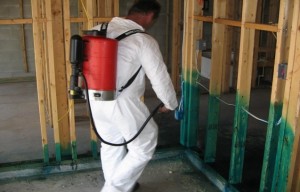Why Pick Our Termite Control Services: Specialist Solutions for Effective Defense
Why Pick Our Termite Control Services: Specialist Solutions for Effective Defense
Blog Article
Ecological Influence of Bug Control: Harmonizing Effectiveness With Sustainability
The ecological impact of pest control is a critical issue that requires a delicate balance in between achieving efficiency in managing bugs and ensuring sustainability of our communities. From the use of damaging chemicals that seep into our dirt and water to the unplanned repercussions on non-target species, the consequences of traditional parasite control methods are significant.
Hazardous Chemicals in Bug Control
The utilization of dangerous chemicals in parasite control postures substantial environmental and health risks that call for mindful consideration and mitigation strategies. Pesticides, chemicals, and herbicides are commonly made use of to eliminate bugs, but their extensive application can bring about unexpected repercussions. These chemicals can pollute dirt, water resources, and the air, affecting not only the targeted bugs yet additionally advantageous insects, wild animals, and human beings.

To attend to these threats, incorporated insect monitoring (IPM) strategies are being advertised as a more lasting alternative. IPM includes a mix of methods such as organic control, habitat manipulation, and the targeted use chemicals as a last hope (ant control belmont nc). By adopting an alternative strategy to pest control, we can lessen the ecological and health effects connected with dangerous chemicals while properly managing pest populations
Effect On Non-Target Variety
Thinking about the unintentional consequences of insect control techniques, the influence on non-target species is a vital facet that needs complete examination. While bug control procedures intend to target details parasites, other microorganisms in the ecosystem may be accidentally influenced. Non-target types, consisting of useful pests, birds, creatures, and also plants, can endure direct or indirect damage from chemical applications or biological control approaches.
Pesticides created to fight a certain insect bug might harm pollinators like or all-natural killers such as ladybugs. Organic control agents, if not species-specific, can pose risks to unexpected targets, interrupting the eco-friendly equilibrium.
To minimize the influence on non-target species, incorporated insect administration (IPM) techniques that emphasize a holistic approach to pest control are recommended. These techniques prioritize using environmentally pleasant techniques, decreasing harm to valuable organisms while properly managing pest populaces. Carrying out extensive danger assessments and monitoring the end results of pest control initiatives are crucial steps in securing non-target species and promoting overall ecological community wellness.
Dirt and Water Contamination
Unintentional ecological effects of pest control methods expand beyond influencing non-target species, with significant effects for soil and water contamination. Chemicals, herbicides, and chemical fertilizers made use of in bug control can leach into the dirt and pollute groundwater, posing a risk to both water and terrestrial ecosystems. Soil contamination can disrupt the balance of bacteria crucial for vitamins and mineral cycling and plant growth, bring about reduced dirt fertility and performance. These chemicals can linger in the atmosphere for extensive durations, gathering in the dirt and potentially entering the food chain.
Water contamination is one more vital problem connected with parasite control methods. To alleviate soil and water contamination from parasite control activities, integrated bug management techniques that focus on sustainability and minimize chemical inputs are important.
Air Pollution From Pesticide Usage
Exposure to air-borne chemicals during farming applications postures a substantial concern for air contamination control procedures. Furthermore, pesticide drift, where pesticides are carried by the wind to unexpected locations, can lead to the contamination of close-by communities and water bodies.

Strategies for Sustainable Bug Control
In the world of farming practices, executing lasting pest control methods is extremely important for keeping ecological balance and protecting plant yields. Lasting pest control emphasizes making use of eco-friendly methods to take care of parasite populaces efficiently while decreasing damage to non-target organisms and ecosystems. Integrated Bug Management (IPM) is a widely adopted method that incorporates biological, cultural, physical, and chemical control methods to accomplish long-lasting insect administration solutions.
Plant turning and diversification are likewise efficient techniques to disrupt pest life cycles and develop much less beneficial conditions for parasites to flourish. Eventually, by incorporating these lasting parasite control methods, farmers can achieve an equilibrium in between pest monitoring efficiency and environmental stewardship.
Final Thought
Finally, the ecological influence these details of parasite control approaches need to be carefully taken into consideration to stabilize effectiveness with sustainability. Hazardous chemicals used in insect control can result in dirt and water contamination, air contamination, and harm non-target types - termite control services. It is important to carry out sustainable pest control techniques to reduce these negative effects on the atmosphere and advertise a much healthier ecological community for future generations
By taking on a holistic strategy to pest control, we can minimize the ecological and health influences associated with dangerous chemicals while effectively handling pest populations.

To alleviate the air contamination caused by pesticide usage, it is important to embrace incorporated insect administration methods that prioritize the use of non-chemical pest control techniques, such as crop turning, natural predators, and resistant plant ranges. Lasting insect control emphasizes the use of eco friendly approaches to take care of pest populaces successfully while lessening harm to non-target organisms and communities. Integrated Bug Management (IPM) is a commonly taken on method that incorporates organic, social, physical, and chemical control techniques to achieve lasting parasite management options.
Report this page